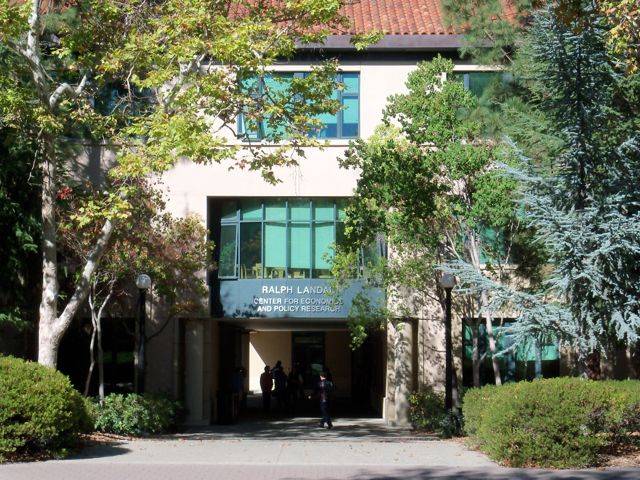Kurt Mitman, a visiting scholar in Stanford’s economics department who is also registered as a sex offender on account of his 2004 assault of a 14-year-old boy, will be permitted to remain at Stanford until his term’s end date of June 30, as scheduled. Mitman also currently serves as an assistant professor at Stockholm University.
The update to his appointment follows the completion of a review begun by the University “to determine the facts of the situation,” University spokesperson E.J. Miranda wrote in a statement to The Daily. He wrote that the University had not been aware of Mitman’s status before it was covered by several news outlets earlier this month, following an initial report by email newsletter The Fountain Hopper.
Miranda wrote that the University is “committed to providing a safe environment for all members of our community.”
“It is an obligation we take deeply seriously,” he added. “In assessing the extent to which a person or situation poses a risk to the safety of our community, we must evaluate the full set of facts available. In addition, our objective cannot be to re-punish someone for past behavior, but rather to make an informed judgment about the actual safety threat posed to the community.”
In 2005, Mitman pleaded guilty to “involuntary deviate sexual intercourse with a 14-year-old boy” and was sentenced to two-and-a-half to five years in prison, The Philadelphia Inquirer reported. An academic-release program had allowed him to attend classes at the University of Pennsylvania, before a judge suspended his participation in the program. By 2008, after receiving parole, he had been reinstated in the school’s economics department.
Miranda added that the University has imposed restrictions on Mitman’s appointment, whose research-focused role is unpaid and does not involve teaching undergraduates. The visiting scholar “cannot have contact with minors and cannot meet with, teach or mentor Stanford undergraduates.”
“Visiting appointments at Stanford are made by individual academic departments and are not managed centrally,” Miranda added. “The university is reviewing its policies to determine how best to assess and address situations such as this one in the future.”
Contact Charlie Curnin at ccurnin ‘at’ stanford.edu.
